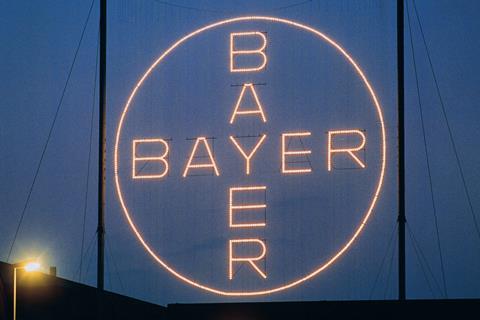The innovative herbicide, which complements existing solutions like glyphosate, will initially launch in Brazil from 2028 before expanding to other markets including the US, Canada and EU

Bayer has said it is advancing registration applications for icafolin-methyl in the European Union, following completed applications in Brazil, the US and Canada.
Icafolin is described by the group as agriculture’s first new mode of action for post-emergent weed control for broadacre crops in over 30 years.
With estimated peak sales potential around €750mn, Bayer expects Icafolin will be launched from 2028 onward with initial availability in Brazil.
Icafolin belongs to a new chemical class providing properties that allow for lower dose rates, more targeted applications, and is ”expected to demonstrate an exceptional safety and sustainability profile”.
In addition, Icafolin is complementary to existing herbicides, such as glyphosate, adding a solution in the fight against weed resistance, a top priority for farmers.
Weed resistances have increased globally over the last years and are a threat to food security as resistant weeds are competing with crops on sunlight and nutrients, thus significantly reducing yield and harvest quality.
The product has been developed for initial uses in topfruit, stonefruit, tree nuts, grapes and citrus, as well as soybean, cereals, pulses, and oil seed crops.
“Weeds threaten food security and farmer livelihoods, which is why investing in game-changing innovations like Icafolin is so vitally important,” said Mike Graham, head of R&D for the Crop Science division of Bayer.
“Access to an entirely new herbicide class that complements the existing toolbox not only helps farmers combat and prevent weed resistance, but it also helps farmers adopt and maintain no-till and reduced tillage practices that improve soil health, which is a cornerstone of regenerative agriculture.”
Weeds treated with Icafolin become ’frozen’ in the fields, meaning they stop competing with crops for water, nutrients and sunlight, but the dead weeds remain in the field longer because they largely maintain their structure.
This, Bayer said, creates a mulch layer that helps prevent erosion and trap moisture in the soil.
By providing effective weed control it reduces the need for tillage, supporting regenerative practices in agriculture that can improve soil health.
Additionally, Icafolin’s intrinsic properties make it suitable for targeted spray applications and lower dose rates, which allows Bayer to submit registration applications under reduced risk status.
Following the first expected launch from 2028 onward in Brazil, Bayer anticipates selling Icafolin in the US, Canada, EU and other geographies over subsequent years.



